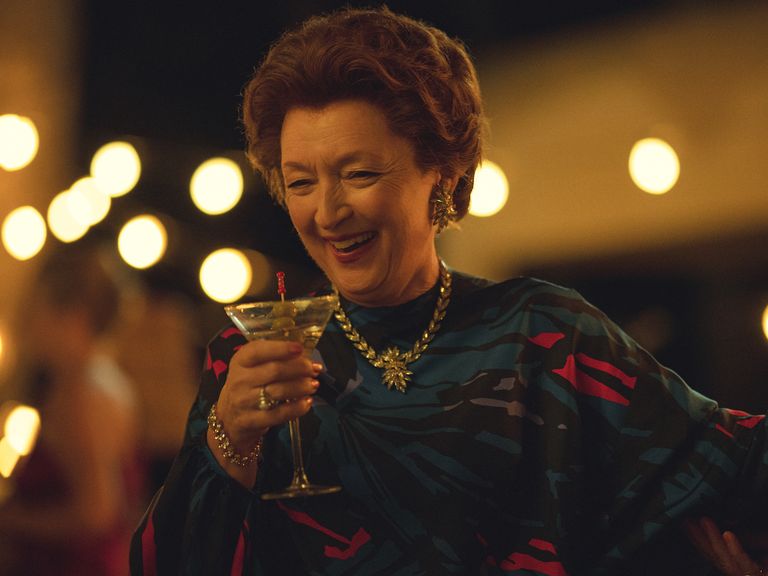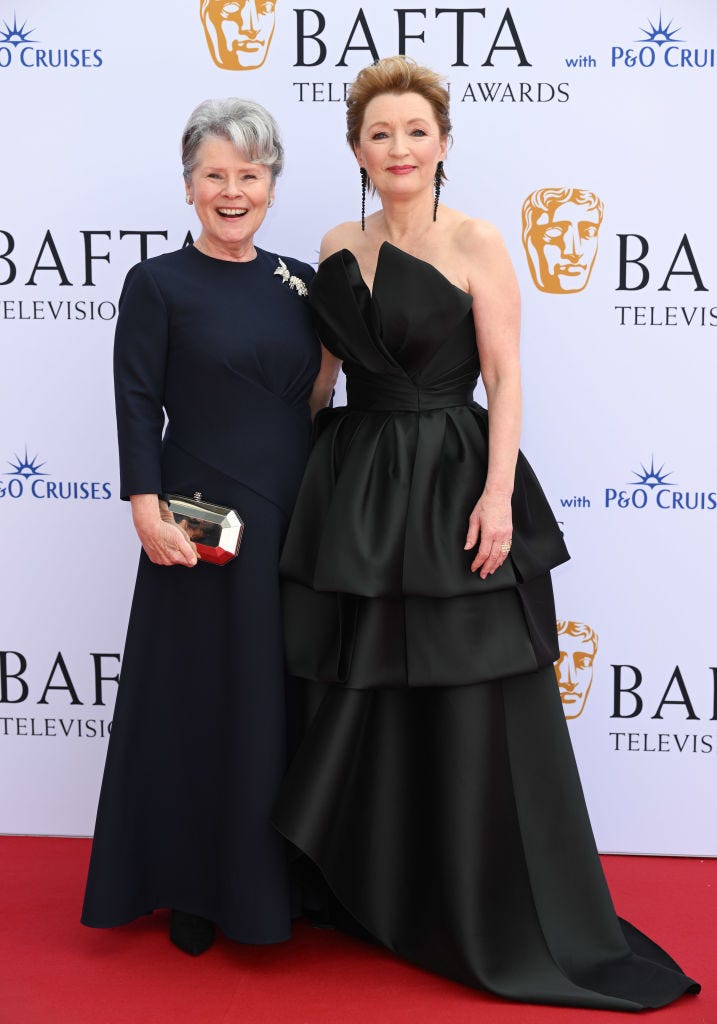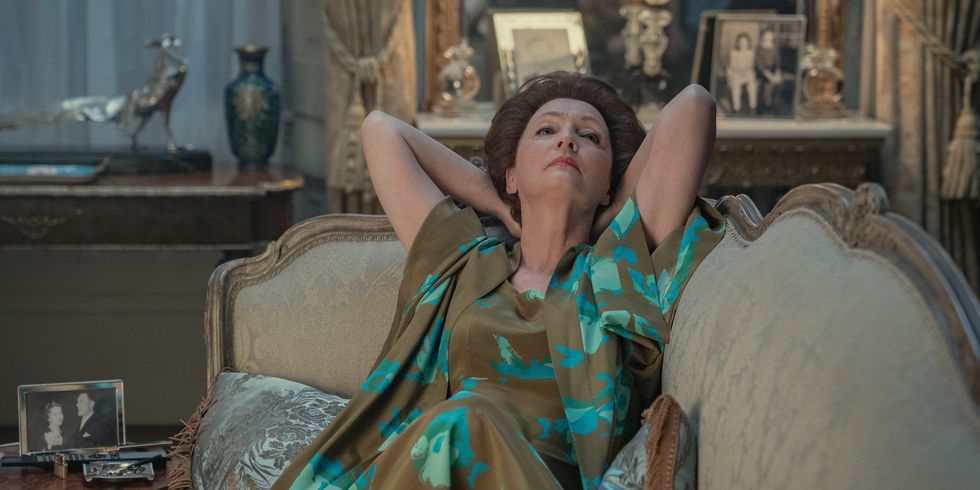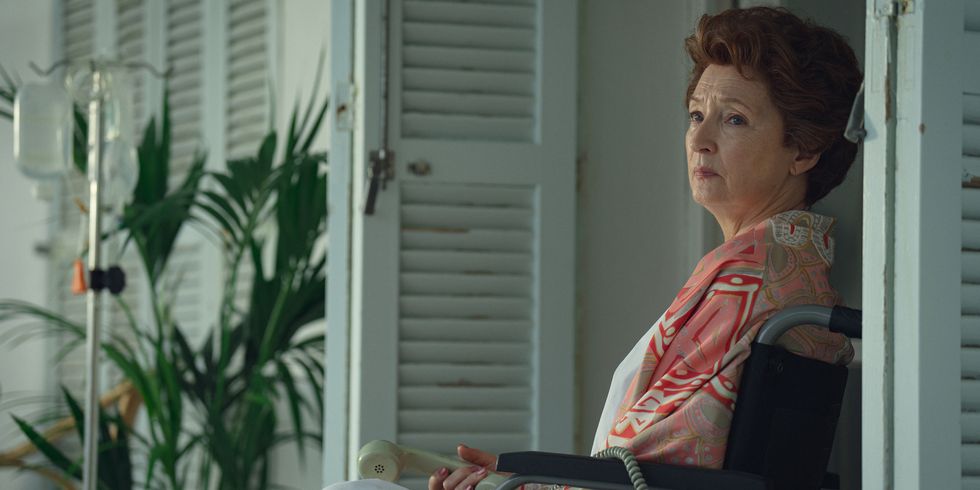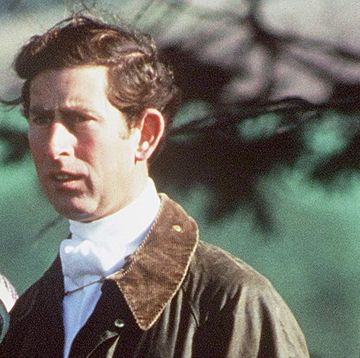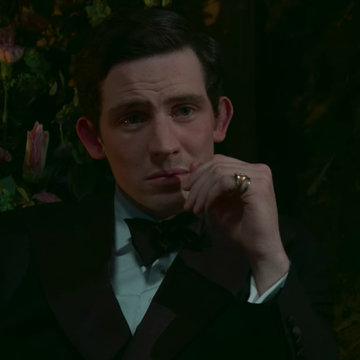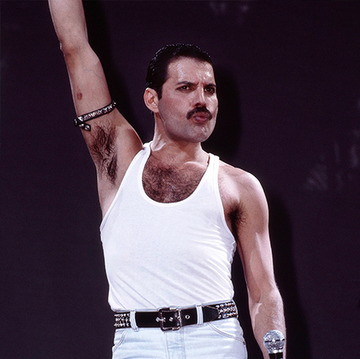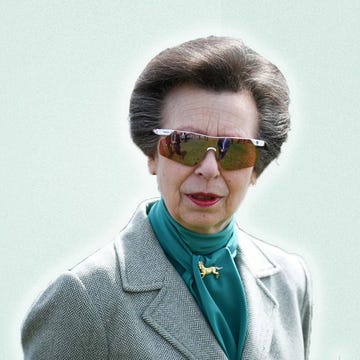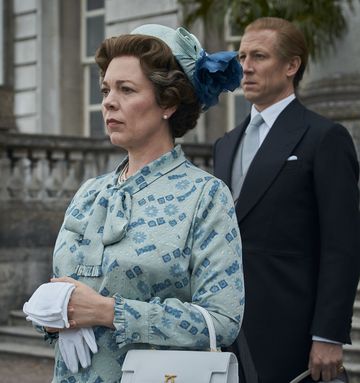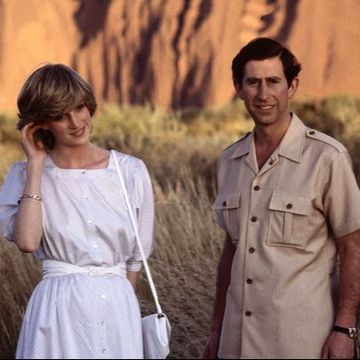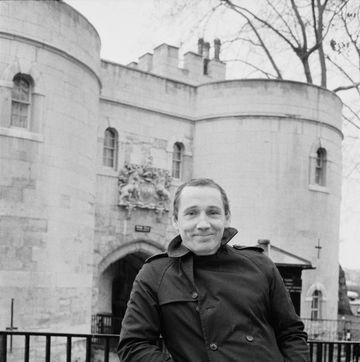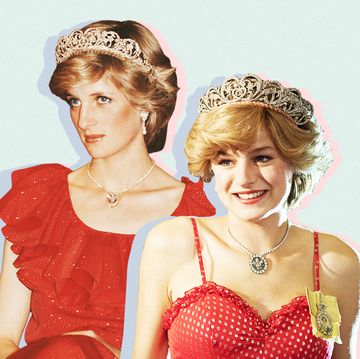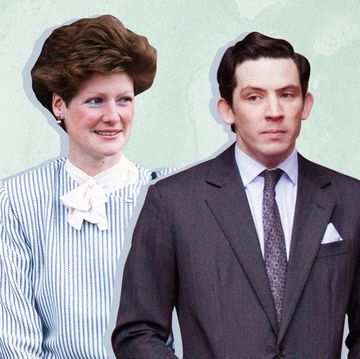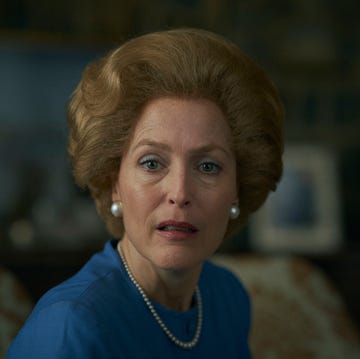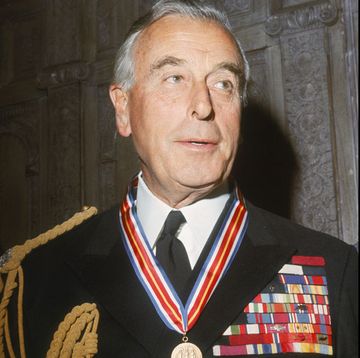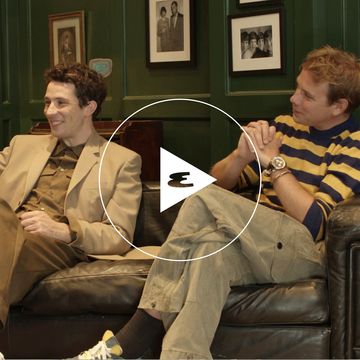An inevitability of The Crown, given that it's based on a real family whose lives were scrupulously documented, means that we often know what's coming. And therefore, with the second half of the Netflix show's final instalment released this week, the moment has come for us to say a fond farewell to the Queen's sister Princess Margaret who, in real life, passed away on 9 February, 2002.
Throughout The Crown's six seasons, Princess Margaret has remained a fan favourite. Starting with Vanessa Kirby's deliciously rebellious twenty-something Margaret in the first and second seasons, continuing with Helena Bonham Carter's Martini-drinking, Mustique-dwelling laissez-faire depiction in the third and fourth parts, tied up with Lesley Manville's no-nonsense, sometimes egotistical yet always loyal and ultimately, lonely and lost 60-something to round out the character's life.
Episode eight of the sixth season is dedicated not just to Margaret but the bond between Margaret and Queen Elizabeth II as sisters. Sisters whose relationship changed forever when one ascended the throne at the age of 25 and the other found herself subject to rules about who she may (or may not) marry, without any such role or responsibility to go alongside it. Much has been made throughout the series of their ying and yang personalities, with Elizabeth famously stoic and duty-bound with Margaret preferring a more hedonistic and free lifestyle, though remaining close in spite of their unique circumstances. The episode flashes back to a widely-rumoured 'royal night out' the two shared as young Princesses to celebrate VE Day, then returns to the early noughties where Manville and Imelda Staunton illustrate the impact of the different routes of their lives had on their relationship later in life.
We sat down with Manville to discuss saying goodbye to Princess Margaret and the potency of that fateful episode eight.
What did you think when you first read the script for episode eight?
I was thrilled. It's an actress's dream. By that point, obviously I'd already done season five so I felt at ease doing Margaret, I knew my Margaret. I was thrilled particularly to have an episode that was devoted to the sisters and their relationship with it being very clear what they meant to each other, how much they loved each other and the way their lives had gone so in very different directions, of course. I was absolutely popping and thrilled.
How much did you and Imelda discuss how you were going to tackle the episode together?
Imelda and I are very, very old friends. We go way back and we're very, very, very fond of each other as Lesley and Imelda. So I think that friendship does some of the groundwork for you. It's about a similar but different love that Margaret and Elizabeth have as sisters, they’re always there and Imelda and I have an affection for each other that's always there. And we’re two actors who I think work in very similar ways. We both are highly professional and turn up, prepared and knowing what we're doing, and then use our instincts on the day. So we didn't discuss it a lot because I know that she knew what she was going to do and she knew that I would know what I was doing.
We just played some of those very delicate, beautiful scenes very instinctively together and very easily. She's wonderful to act with and I have the utmost admiration and respect for her, and her work is so fine and truly it was the highlight of the series doing that episode with her. We had a wonderful director, Alex Gabassi, whose input was invaluable and also let's not forget Peter Morgan has written a very lovely episode for us, too. So a lot was in place for us to rise to, and when it's that good you don't want to let the side down. It all came together, It was like the stars aligned with this episode. It was rather special.
Was shooting episode eight your final scenes as Margaret?
No they weren't actually, that's one of the challenges of doing a big show like this. You have to really get your head around the arc of each episode.
How did you approach her for this season, knowing that she was going to die?
I'd read a lot about the circumstances of her death, that over a few years of the last period of her life she was having a sequence of strokes and alongside that she kept flitting backwards and forwards to Mustique. So I kind of knew that was the way things had gone. I was really thrilled to play her at this complicated time of her life. We know the Margaret from seasons one, two three and four. We know this wild child, we know the naughty Margaret, and she still is a bit wild and naughty, that never leaves her because that's her character. But I got to play her at a time when she is struggling with who she is, her role in life, she doesn't actually have a job or anything as such. She's not head of the Church of England and Queen of the United Kingdom and Commonwealth like her sister is, this is a very difficult time for her and also, she's looking at her life as a woman in her sixties who is lonely. She doesn't have a Philip in her life and that's taken its toll. Of course, she has a huge number of privileges. She leads a privileged rarefied existence, but that doesn't get away from the fact that you she was very lonely and regretted that she didn't have a partner to live out those final months of her life.
What was your most valuable research resource for season six?
When I read the episode I thought, right, I need to try and understand what it's like to have a stroke; what it does to you, strokes affect everyone differently and there are varying degrees of stroke as well. Clearly the first one that she has is quite mild, then there's the second one and then there's a third one that kills her. So I went and met stroke victims, talked to them about how it had affected them. I saw some people who had recovered from strokes, had experienced mild strokes, and I saw some people sadly, who had had quite severe strokes and I could see what what it had done to them.
We also have medical help on the set, we have a doctor telling us how things would have happened, and what happens when you're about to get a stroke, because you see her about to have them. So that's a bit of practical research, really, and then you just have to get on with good old fashioned acting really.
Though the episode was obviously very sad, Margaret also maintains her sense of humour and is shown in Mustique drinking and smoking. How much fun has it been to play Margaret?
It's great to play this character who is absolutely all those things that you've just said. But I think this word fun gets bandied around a lot. People say “was it fun shooting this?” I mean I can see that the end result and in some of those scenes you're looking at it and you think "Oh, look at that. I mean, that that character is having a lot of fun." But it's the work that you do to create that fun. Of course, I have a nice time on the set, I can be doing scenes that are very depressing, or telling stories that are quite hard to tell but if the team around you is making it a good day at the office, as it were, then you can be shooting anything, and it's a good day.
But of course it's always nice to get Margaret in one of her big floaty kimono things and get the cigarette holder on the go and just kind of think, “Oh God, what a character. What a wonderful woman she was” she kind of was so exotic, wasn't she? Slightly larger than life and she just was looking for love really all the time in whatever way she could get it. Whether that's sibling love, friendship love. She was also looking for romantic love, which, unfortunately, at this time of life didn't really come her way again.
You are one of three to have played Princess Margaret in The Crown. Given that the character's journey was ending with you, did you think about that when tying up this character?
Not consciously, because we can only play what we're given. Vanessa and Helena both played such wonderful versions of her, you can absolutely see that woman living and breathing and see the life that she was having and I honestly thought of it as a real thrill and a privilege to take over and play her at this very lonely time, and just show this picture of a woman who was so celebrated. You know, in her time, she was the Princess Diana of the 1950s and in the 60s, she was everywhere. She had more newspaper coverage than Diana had and that's a fact. When I think of playing a woman like that, who's been so lauded and celebrated, and everyone wanted to be around her, she's had this extraordinary life and loved how she looked, to playing her now at this time when she was hating how she looked.
There's that famous photo of her in the wheelchair when she's burned her ankles so her ankles are swollen and is wrapped in blankets with sunglasses that we recreate in The Crown. In one of the books I read, it was suggested that she didn't want men seeing how she looked, how men viewed her was incredibly important to her. And I thought that's so interesting for me to get to play that. In the back of your mind, the audience are remembering the firecracker of Vanessa Kirby and Helena Bonham-Carter and that woman who was just so "Wow" and here we are looking at that woman in a wheelchair, not wanting the world to look at her anymore. That's interesting to play.
What is your hope for people take away about Princess Margaret from your depiction?
I hope that they will think "Wow, that was a lonely last phase of her life" as opposed to just writing her off as a privileged party girl. I want people to see beyond the privilege because we know that privilege, we know it's there, that was their lives, they were highly privileged. For the generation watching who won't know Princess Margaret, well, they'd have to watch seasons one to four and they will see what kind of a woman Margaret was and then how in her last few years how she declined and what it was like for her to be a lonely princess.
What has been your favourite part of playing Princess Margaret?
The whole thing has been very fulfilling. It's been very nice to be in a series that has broken the rules and is so unique. It's never been done before that three separate casts have played a whole family, a whole dynasty across this huge period of time. You could have done it another way you could have got an actress who was maybe in her 40s to have a lot of work to look to play her young and then go into the old, but to have these three separate casts tell the story that has never been done. And The Crown is the most successful series worldwide, so to have been asked to be such a significant, fascinating character in that great big mix, that's called The Crown, that's the favourite. It's been a fantastic job.
You're playing these historical figures that people think they know so well and have memories of, and because of that whenever The Crown comes out, there is always a lot of scrutiny. How have you found that as an actor?
Of course, and we're not trying to quash those memories or destroy them, or manipulate them in any way. What we're doing, which again, is very unique is we're not making a documentary, we are making a drama about a very well-known family. But therefore what we can do, which is rather wonderful, is we can dramatise their lives, we can imagine what it's like. We can imagine all the things that we don't know and we shouldn't know, they’re private and people are entitled to a private life. But the royals are human beings with blood running through their veins so this is where The Crown is a brilliant thing, because it can speculate and that's what Peter Morgan has set out to do. You know, it started with the film The Queen when Helen Mirren played her, he then did a play called The Audience again, initially with Helen Mirren. Now he's done The Crown, he really knows this family. He's not a documentary maker, he's a dramatist. And I think that when you look, even if you just look at episode eight, and see these amazing, emotional, beautiful scenes between these two sisters, you know, you can think "Oh, I wonder if they're that." I'm pretty certain they were because everything you can read backs up the scenario that they were very close. But if they weren't, then we're making a drama. They're interesting characters to write about, so why wouldn't you? In the same way that people will still write about Cromwell and Elizabeth I. This series, I think, will really stand the test of time, people will be watching it for many, many decades to come.
What do you think the show's legacy will be?
I think it will go down in history as one of the great television series of the 21st century and that place will be rightfully earned in my opinion. I think part of that will be because the monarchy will inevitably shift over the next 10, 20 years, not just because we will maybe have an another king but within that whoever is on the throne, the monarchy will shift and change and it's a great piece of drama to see how it was in this family and how much it changed over the reign of Elizabeth. She lived through such different social climates, attitudes, social attitudes towards the crown and everything it stood for. So I think the series will serve as a great history lesson and for me, I've done lots of significant important great pieces of varied work in my career but it's been wonderful to play somebody absolutely at the top of the social scale, and be part of what I think is truly a great piece of television.
Are you going to miss playing Princess Margaret?
No, I've done it. I’ve done her. and I could not have done it under a better umbrella. For me, I don't mind what anyone thought of my Margaret. I feel I've done her justice.
The Crown's final season is now on Netflix.

